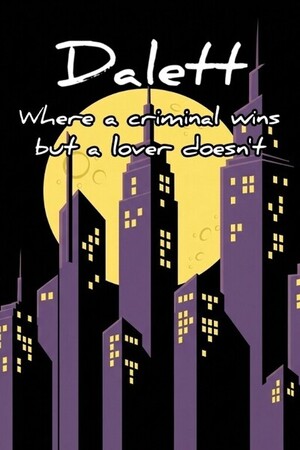Chapter 4:
Very Ordinary Man
Dalett: Where a criminal wins, but a lover doesn't
Karl, a very ordinary man, had saved one million units. From the bank he borrowed another million. With these two million units he founded a cookie company. He called it K Limited.
He went to the merchant bank. The Head of Operations sat behind a desk that seemed too wide for one man. Karl explained: “I want my company listed on the Exchange.”
The Head answered calmly, as if speaking from a script:
“Regulations demand forty million units of paid-up capital. Your company has only two. Impossible.”
Karl began to leave, but the Head leaned forward. “Unless,” he whispered, “you pay me ten million units. Eight for the process, two for myself. The bank must not know. Don’t worry. You will not spend your own money. We will take it from the market. You will sell half your company, keep the other half.”
The words did not sound like advice but like orders Karl had already accepted. He nodded.
The Head went to the auditors. “Value this company at forty million.”
The auditors did not object. They asked only for their fee. After bargaining, they settled on one million.
Next, the Head called the Commission. He did not speak to the Chairman but to the Chairman’s servant — a servant unlike others, who held more power than he should. The servant listened and said: “It cannot be done for less than 2.2 million. Prices are rising. My daughter’s tuition is unpaid. Take pity.”
“Fine,” the Head replied. “The deal is done.”
Finally, he went to the Exchange itself. The officials said: “Approval costs two million. No less.” The Head agreed.
And so, a company worth two million on paper was written down as forty million. The IPO was filed. Twenty million in shares were released to the public at an inflated price. Thirty million came back.
Karl delivered ten million to the Head. The Head divided money to the Exchange, the auditors, the servant, and the Chairman. Envelopes moved in silence. Everyone was satisfied. The first stage was complete.
When K Limited was listed, shares priced at fifteen units began trading. Ordinary buyers rushed in. They bought at fifty. Karl watched the numbers leap like shadows on a wall. His remaining shares now looked like one hundred million units.
He ordered the accountant to invent new profits. “Show 2.4 million profit in three months.”
The accountant protested: “The company makes only 1.2 million in a whole year.”
Karl replied: “Adjust the numbers. If we must, call the rest a loss later. No one will notice.”
Karl sold everything, keeping only a single share, as if to prove ownership. One hundred million flowed into his pocket. The public held the emptiness.
Now Karl grew busy with expenses. He made himself Managing Director, paying himself forty units in salary. He made his wife Chairwoman, giving her fifty. His children received positions and stipends. Soon the family consumed nearly all the profit.
The company was charged rent for Karl’s own house, fuel for his car, wages for his driver, food for his table. Even underclothes were billed as company costs. The profit turned into a loss of sixty units. Karl felt a strange satisfaction in this. “A loss is safer than a profit,” he thought. “A loss makes us invisible.”
The second stage ended.
Fees for the Exchange went unpaid. Six months later, K Limited was struck off the list. Its cookies stopped selling. Karl decided to sell the company for one and a half million.
His manager said, “Sir, you own no shares. You sold them all to the public. And the bank is still owed one million.”
Karl shrugged. “Then let the bank write it off. As for the public — they will chase the courts. The courts move slower than time. By the judgment’s arrival, their grandchildren will be dust.”
The company dissolved into silence.
The public lost everything. Some wandered the streets. Some disappeared. A few ended themselves quietly. But Karl remained. He had money now, although money here felt more like air than substance. He had passed through the corridors of law and market, not as a man who cheats, but as a man who simply obeys the rules no one else could see.
And still the offices stood, and still the papers moved, and still the Exchange hummed, as though nothing at all had happened.




Please sign in to leave a comment.